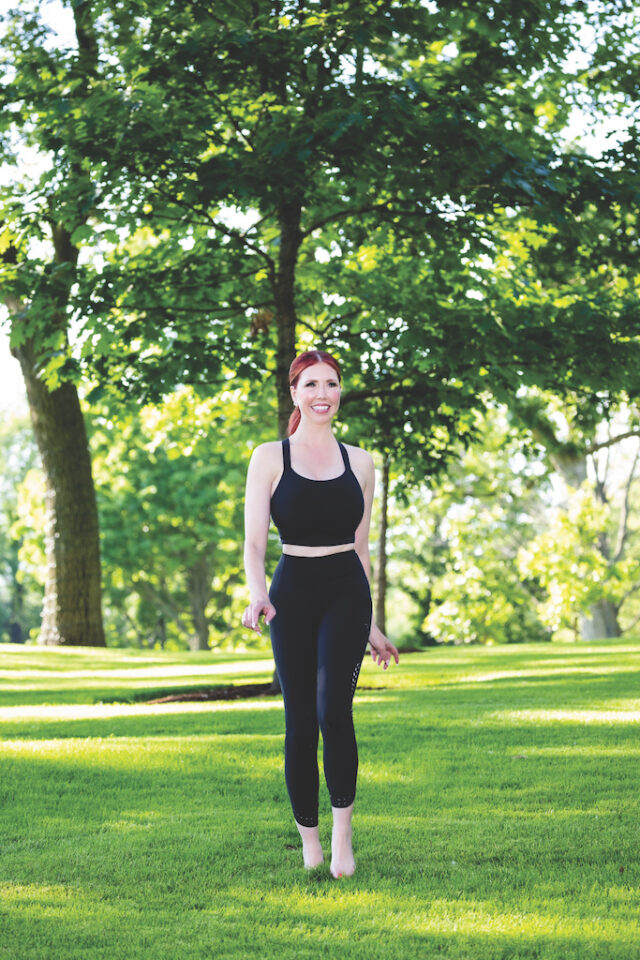
Every October, which is Breast Cancer Awareness Month, I think more than usual about the many breast cancer patients I’ve known over the years—personally, professionally through my work as the former chair of functional medicine at Cancer Treatment Centers of America, and philanthropically via my role as vice chair of Gateway for Cancer Research. Cancer touches far too many lives, and breast cancer takes a particularly hefty toll. That’s why Gateway’s vision to shape a world in which cancer is no longer feared resonates with me.
One of the main objectives of my company, VibrantDoc, is to empower people to make a difference in their own health. This is primarily accomplished in the realm of lifestyle choices. Both of my books, Vibrant and Glow, center on arming people with knowledge, tools and resources to take control of their health. Vibrant includes foundational health information, because I believe strongly that you can’t get very far without first conquering the basics of good health. What you eat, how often you move and how well you connect with others forms the foundation of personal health. Glow is a 90-day plan for inserting more self-care into our daily lives by practicing brief, ritualized morning and evening inspirations, motivations and meditations. The result of these daily rituals is an inner glow.
So, what do breast cancer awareness and health empowerment have in common? As someone who built my practice around taking a functional and integrative medicine approach to health and healing, I have witnessed the powerful effects of making simple lifestyle changes. Improved health, increased energy, better mood and an overall enhanced quality of life are easier to achieve than most people realize. Over many years of private practice, medical consulting, and now as an author and public speaker, I’ve learned and taught others that we are far more powerful than we might think. No matter one’s current health status or potential disease diagnosis, the choices we make every day really do make a difference in terms of how we feel and function. Making intentional choices that foster health and wellness leads to vibrancy, despite whatever disease we might be facing.
Lifestyle medicine isn’t necessarily a cure, but it is a move toward health empowerment. In terms of breast cancer specifically, research shows that lifestyle choices matter, both in terms of how people feel, and even how well they heal. Health and recovery are greatly influenced by lifestyle, diet, environment and even our beliefs.
For example, a 2020 study of over 17,000 women published in Breast Cancer Research and Treatment showed that menopausal women who had three to five unfavorable lifestyle factors (such as not exercising, drinking alcohol daily, smoking, having high blood pressure and having a body mass index above 25) were twice as likely to develop postmenopausal breast cancer. They were also nearly 3.5 years younger at the time of diagnosis. A 2023 study showed that breast cancer patients who most closely adhered to a lifestyle focused on cancer prevention were 37 percent less likely to experience breast cancer recurrence, and 58 percent less likely to pass away during the course of the study. The cancer prevention lifestyle studied included not smoking, regular physical activity, eating fruits and veggies, and avoiding sugar-sweetened beverages and processed meats.
And let’s not forget the power of the mind. A 2017 study published in Breast Cancer Research and Treatment investigated the important link between breast cancer and a person’s social support network. It showed that those who felt isolated, lonely or unsupported did not fare as well in their cancer treatment and recovery as those who felt socially supported.
These are just a few findings from the vast field of research on what influences the incidence of cancer, cancer survival and cancer recovery. In my experience—and much research supports this—any chronic disease, whether it’s cancer, diabetes, an autoimmune issue or high blood pressure will be easier to manage and recover from when there’s a commitment to living a healthful lifestyle. What does that look like?
Diet
First and foremost, it comes down to the things over which you have the most control. For most of us, that’s what we choose to eat. Only you can decide what you put on your plate. The most studied diet for overall health and disease prevention is the Mediterranean diet. Hallmarks include lots of vegetables, fiber, omega-3 fatty acids (like the kind found in fatty fish and flaxseeds), low-sugar fruits, nuts, and very few processed foods, as well as very little refined sugar, refined flour and saturated fat. I’ve also found that cutting portion sizes can make a difference. The hypercaloric diets that are so common today contribute to metabolic issues like diabetes and obesity.
Start improving your diet right now by cutting out (or cutting back on) sugar-sweetened beverages, fast food and packaged food, and doubling your vegetable and fiber intake. Drink water and green tea—their hydration and cancer-fighting antioxidants offer countless benefits.
Exercise
Daily exercise is critical for creating good health. Your organs and systems, not to mention your muscles and joints, work better with regular exercise. A not-so-insignificant added benefit is that it also improves mood and motivation, which can help on the journey to making meaningful lifestyle changes. You don’t need to go to the gym. Even a gentle daily walk can help get you moving in the right direction. You might also consider trying yoga or Pilates, bicycling or hiking. What matters is that you find something you enjoy that makes you feel good. You can always increase frequency and intensity along the way.
Mental Health
Finally, address your mental health. If you feel depressed or anxious, seek help from friends, family or a professional counselor. Make a point to communicate with people who support you on a regular basis, and be sure to take time for yourself each day. Meditation, prayer, journaling, reading, listening to music and walking outdoors have incredible mood-boosting benefits. Whatever it is that fills your cup, make it a priority, because reducing the stress in your life will help you feel and heal better.

And when speaking about the impact of lifestyle choices on outcomes for breast cancer patients, none of what we know to be true would be possible without dedicated researchers who conceive of, design and carry out the clinical research that aims to make a difference in the lives of cancer patients. That’s why I’m so supportive of Gateway for Cancer Research. This amazing organization prides itself on putting patients first in every sense. This means that in addition to funding groundbreaking clinical trials that investigate the safety and efficacy of novel cancer treatments, Gateway also funds research centered on making people feel better during and after treatment.
There’s a clear connection between integrative, lifestyle medicine practices and improved overall health outcomes for breast cancer patients. That’s why I am immensely proud of the research Gateway funds to investigate the benefits of integrative therapies for breast cancer patients. Some of the clinical trials funded by Gateway have explored the impact of therapies like acupuncture, exercise and diet, select dietary supplements and prayer for patients who are undergoing treatment for breast cancer. The results of these studies demonstrate that our lifestyle choices make a truly meaningful difference—even in the face of cancer.
In my books, Vibrant: A Groundbreaking Program to Get Energized, Own Your Health, and Glow and Glow: 90 Days to Create Your Vibrant Life from Within, I encourage readers to embrace what I call the Vibrant Triad of food, movement and connection. These three pillars of personal health and healing can have a direct and positive impact on almost any disease. Because making sweeping changes can be difficult, I encourage people to start slowly. Within Vibrant is a 30-day program for introducing new habits gradually, at a realistic pace.
Building on the benefits of the Vibrant Triad, Glow is more about the self-care aspect of health and healing. It focuses on the importance of taking time every morning and evening to slow down, regroup, reflect on the day, and commit to living with more intention and awareness. Together, these books support realistic and achievable lifestyle changes that anyone can make to begin transforming their outlook, health and healing.
One of the features people seem to like most about Glow is the weekly mantras. These short affirmations that you can repeat to yourself whenever you need them serve as a reminder about the importance of mental health, and they offer incredible motivation to face whatever life may throw your way. Here are a few that I wrote with cancer patients and caregivers in mind:
I marvel at the miracle that is life.
I participate fully and mindfully each day with reverence and gratitude.
I give support and encouragement to all those around me, and I willingly receive it in return.
I use my intuition to determine what is healthy for my mind, body and spirit.
Whatever your health situation, I hope you’ll join me this month in supporting breast cancer research. It is only through philanthropic support that organizations like Gateway and the researchers they fund can find new and meaningful ways to deliver hope and healing to those facing this insidious disease.



